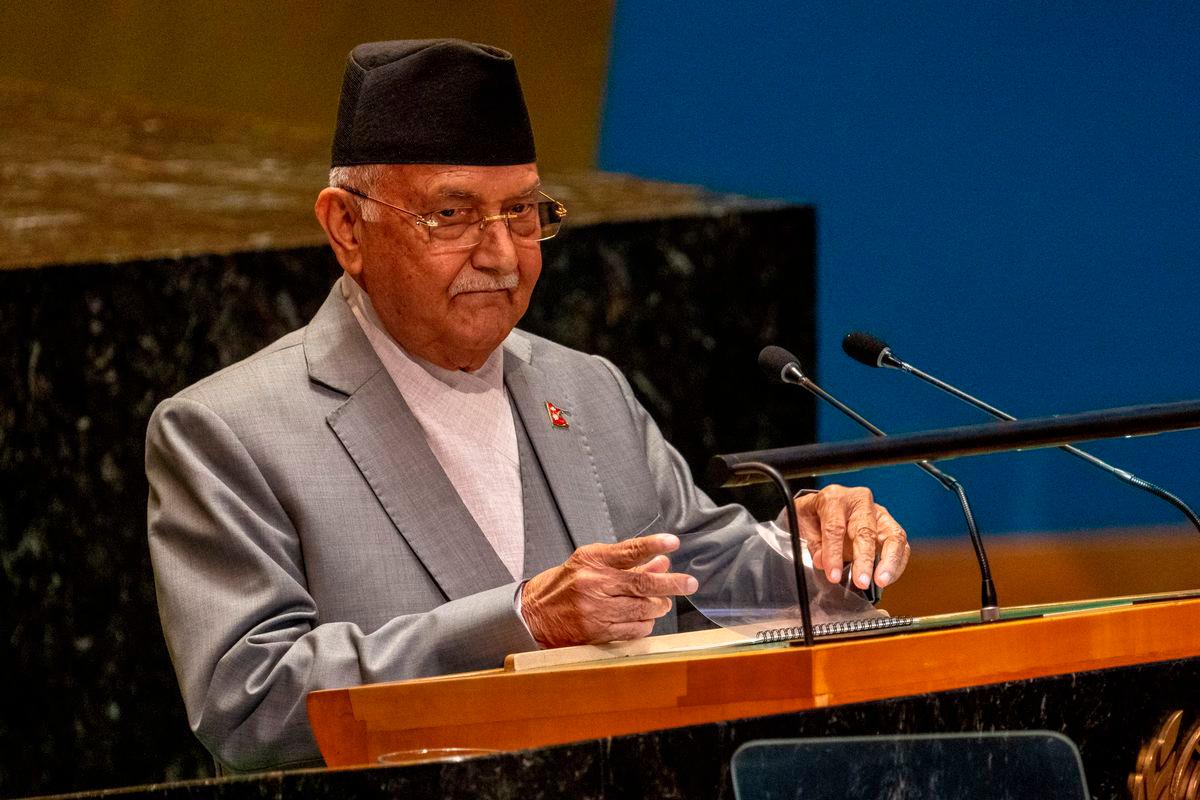KATHMANDU: Nepal Prime Minister K.P. Sharma Oli resigned on Tuesday amid escalating anti-corruption protests that defied an indefinite curfew and resulted in violent clashes with police.
The resignation follows Monday’s deadly unrest that killed 19 people and injured more than 100 others during demonstrations triggered by the government’s social media ban.
Oli’s government lifted the social media restrictions after protests intensified, with police firing tear gas and rubber bullets at protesters attempting to storm parliament.
The political crisis represents the worst unrest in decades for the Himalayan nation, which has struggled with instability since abolishing its monarchy in 2008.
Oli stated in his resignation letter to President Ramchandra Paudel that he stepped down to facilitate a constitutional solution to the country’s adverse situation.
The President’s office confirmed acceptance of the resignation and initiated discussions for appointing a new leader while the army appealed for public restraint.
The 73-year-old leader was sworn in for his fourth term as prime minister last July, becoming Nepal’s 14th premier since the monarchy’s abolition.
Two cabinet colleagues resigned on moral grounds late Monday as protests continued despite Oli’s calls for peaceful dialogue and political solutions.
Protesters gathered in front of parliament and across Kathmandu, setting tires ablaze and throwing stones at riot police while black smoke filled the sky.
Witnesses reported protesters setting fire to politicians’ homes, with local media indicating some ministers required military helicopter rescues.
Kathmandu’s main international airport closed immediately due to safety concerns from nearby protest fires endangering aircraft operations.
Protesters expressed demands for a corruption-free country with better access to education, healthcare and economic opportunities for all citizens.
Organisers described the nationwide demonstrations as “Gen Z protests” driven by youth frustration with government corruption and limited economic prospects.
A protester’s email to Reuters cited social media posts about corrupt officials’ luxurious lifestyles as triggering the government’s social media clampdown.
Neighbouring India called for restraint and dialogue while several foreign embassies jointly urged protection of fundamental rights and peaceful resolution.
The government had imposed the social media ban last week, citing platform registration failures and concerns about disinformation and fraud.
Critics accused the government of attempting to throttle free speech, though officials denied these allegations and emphasised public safety concerns. – Reuters









